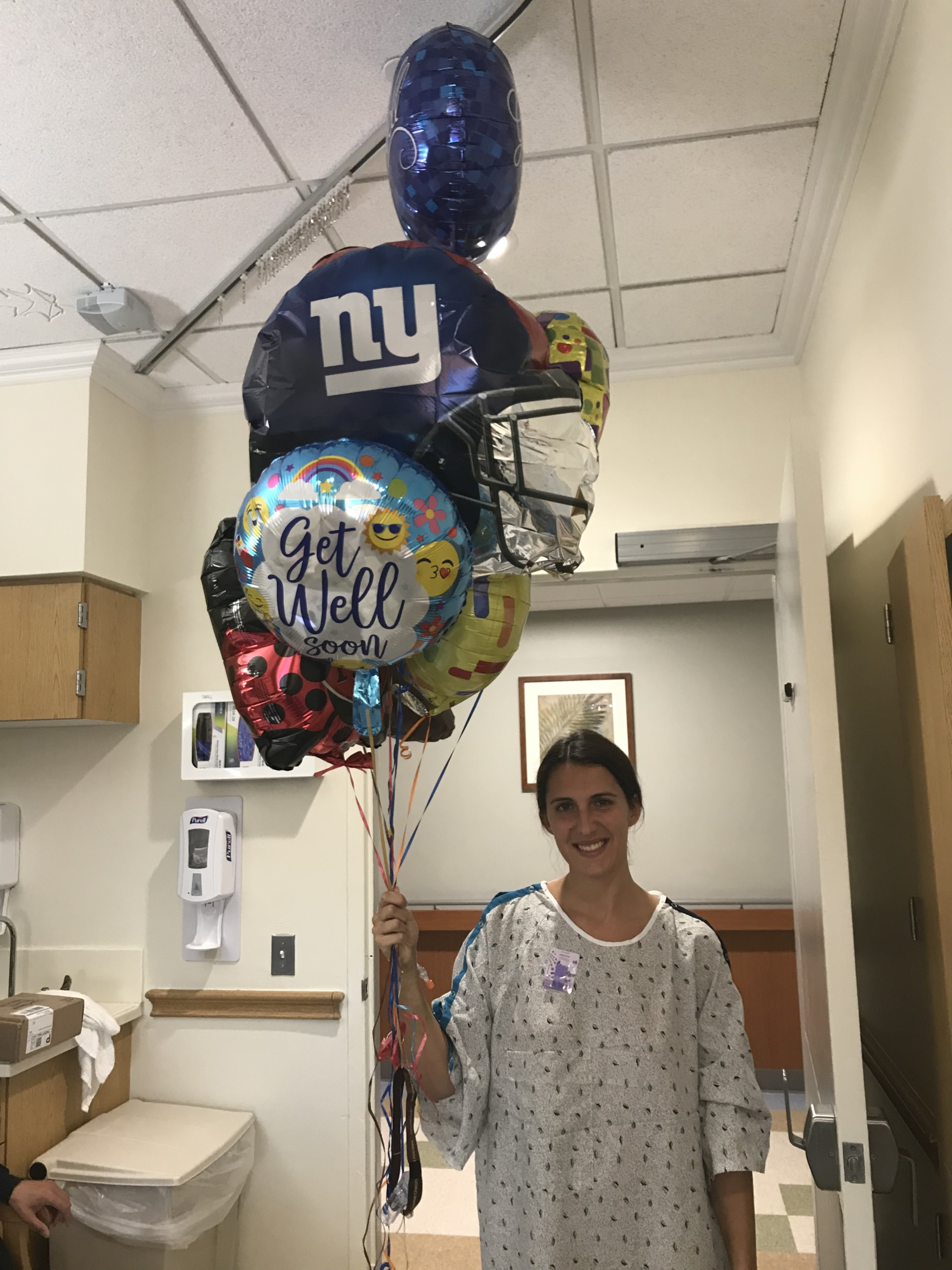The Unexpected
By Rachel Paverman
At 25 years old, I was in the prime of my life. Traveling to multiple countries/cities for work, living with my boyfriend of 7 years, maintaining an active lifestyle by going to the gym, hiking, and snowboarding. In the summer of 2019, all of that started to change. I started noticing some weird neurological symptoms that my family brushed off as just anxiety or stress. I tried to see a therapist, but it didn’t help and things kept getting worse. My primary care doctor ordered a bunch of tests that all came back normal. He decided to order an MRI of my brain just to rule things out.
Thursday September 19th, the day of my MRI, was just like any other day. I was working from home and scheduled the appointment for my lunch break. I really didn’t think much of it, because everything up until this point had come back normal. They found a strange image on my scan and rushed me to the hospital. By Monday, we had a diagnosis and were meeting with the chief neurosurgeon at Robert Wood Johnson University Hospital. I was diagnosed with a cavernous malformation (cavernoma) on my brainstem. Basically, this is an abnormal cluster of blood vessels that had started to bleed and put pressure on my brainstem, which is the part of the brain that controls basically all the important functions. We were told that since it bled once, it is more likely to bleed again and cause more serious issues in the future. After a few days of discussion, we decided to operate to have the lesion removed on Thursday, September 26th.
After my surgery, I spent about a week and a half in the ICU where I experienced some pretty crazy symptoms. I couldn’t open my eyes for about 3 days because the room was spinning like a windmill. It took me a few days to get out of bed and try to walk. Eventually, my symptoms subsided enough that I was transferred to a rehab hospital where I spent the next 2-3 weeks re-learning how to stand, walk, and do basic functions to take care of myself like brush my teeth and wash my hair. I was discharged home in October, and I thought the worst was behind me.
I spent the next month trying to adjust to being home. However, I started to develop a constant, severe throbbing headache. This lasted for weeks and none of the doctors could tell me why or when it would let up. It got so bad, that it started causing me to slur my speech and I started getting a lot more off balance. My mom took me to the hospital on December 5th. I was admitted to be monitored for a day or two, however, things started taking a turn for the worst. That weekend, the right side of my body became paralyzed. The doctors then realized that the cavernoma had not been fully removed, it was bleeding again, and I would need a second surgery.
My second surgery was December 10th. I spent more time in the ICU this time after my surgery. I never really started to get better, but everyone thought that getting me on my feet and into rehab would help. I was transferred to a rehab hospital again. Over the next week or so, things continued to spiral downwards. By the end of the week, instead of improving, I was starting to decline drastically. I couldn’t speak, couldn’t swallow, couldn’t hear anything, couldn’t see very well, couldn’t use the bathroom on my own. I was vomiting and constantly nauseous. One night, the nurses were very concerned about my breathing and I was transferred back to Robert Wood Johnson.
I have a really good memory of everything that happened, up until I was transferred back to the hospital. Things started getting foggy for me at this point. My family was told that the cavernoma was still inside my brainstem, and a third surgery would be needed to save my life. Apparently, the first two surgeries (the same incision site) did not allow the surgeons to access the entire cavernoma. This surgery would be performed through a different incision, which is more risky, but would allow the surgeons to view and access what they needed to. My third surgery was December 30th. Finally, the cavernoma was 100% removed. My neurosurgeon said this was the cleanest brain scan I have ever had. However, the doctors didn’t know how I would recover from all the deficits I had developed.
On New Year’s Eve, I woke up. I was able to breathe on my own, swallow, speak, hear, see, and use the bathroom. Unfortunately, I was still left with right sided body paralysis, left sided facial paralysis, slurred speech, balance issues, nystagmus of my eyes, and left sided hearing loss. I then started the long recovery process (which I am still in the middle of!). I started out spending 2 months at a rehab hospital, then completed outpatient therapy once I was sent home. Right when I started outpatient therapy was the start of the COVID-19 outbreak, which derailed my therapy plans. My family had to help me improvise ways to continue my rehab at home while outpatient therapy facilities were closed.
Fast forward to today, almost 18 months later. I am finally starting to be more independent. I can walk with assistive devices (independently!). I can control my right side better, but still can’t use my right hand functionally. I am learning ways to compensate for this, while still in rehab to hopefully return function. The left side of my face is still paralyzed, but I am working with a team of doctors in New York City to complete multiple surgeries to restore movement and sensation. Two surgeries have been done so far with a few more planned in the future. My neurosurgeon is confident that the cavernoma is fully removed, and I have remained stable with multiple follow-up scans to monitor it.
The hardest part of recovery for me has been mental, not physical. I have my good days and my bad days and have to continuously remind myself of how lucky I am to be alive, and how lucky I am to still be making progress each month. Progress is slow, but progress is progress and I’m thankful that I’m still recovering. I look back a lot at how my life was before this, and can’t imagine doing some of the things that I used to do so easily. The biggest lesson that I learned was to take life for what it is, and not take it for granted because you never know what could happen to you in the blink of an eye.
I find it very helpful to connect with others on social media who have been through similar situations that I have. I can tell my friends and family my story and they can be sympathetic, but unless they’ve gone through it themselves they really can’t understand the feeling of having your life change so drastically. It’s really nice to have a separate support system with other survivors, so we don’t feel so alone. Through connecting with others, I found this great organization and am so thankful that I found it.


